A hammock chair in your favorite cozy corner can truly transform your home into a more inviting space. Indoor swings are becoming increasingly popular, not just because they’re a comfortable place to sit, but also because they add a playful, joyful touch to any room. In fact , Indoor Swings ideas or guide is here to help—whether you’re a parent looking to create a livelier home for your family or simply someone who loves unique, innovative design ideas. Moreover, we’ll walk you through everything you need to know, from choosing the right swing for your space to ensuring it’s installed safely and securely. Our focus is to help you create an indoor swing that’s both beautiful and safe, giving you peace of mind and a little extra joy in your home.
Design Ideas for Indoor Swings
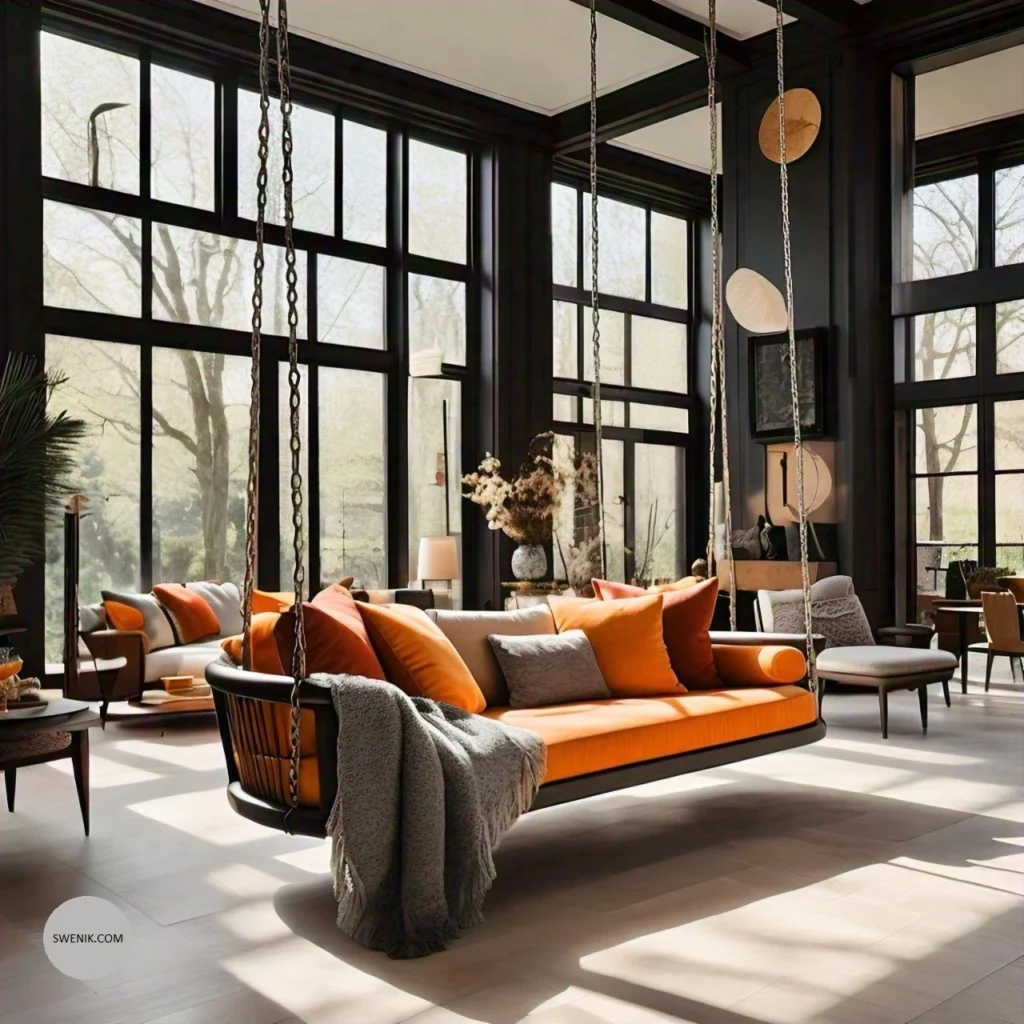
In any interior design, the internal swings can be an eye-catching and striking appeal. They also act as an accent of motion which makes the spaces feel more interesting. Incorporate a single swing if the interior is more sleek and modern or a macramé swing if your style is more boho chic. On the other hand, one can also consider a classic wooden swing which has a weathered look to give out warm feelings in the home.
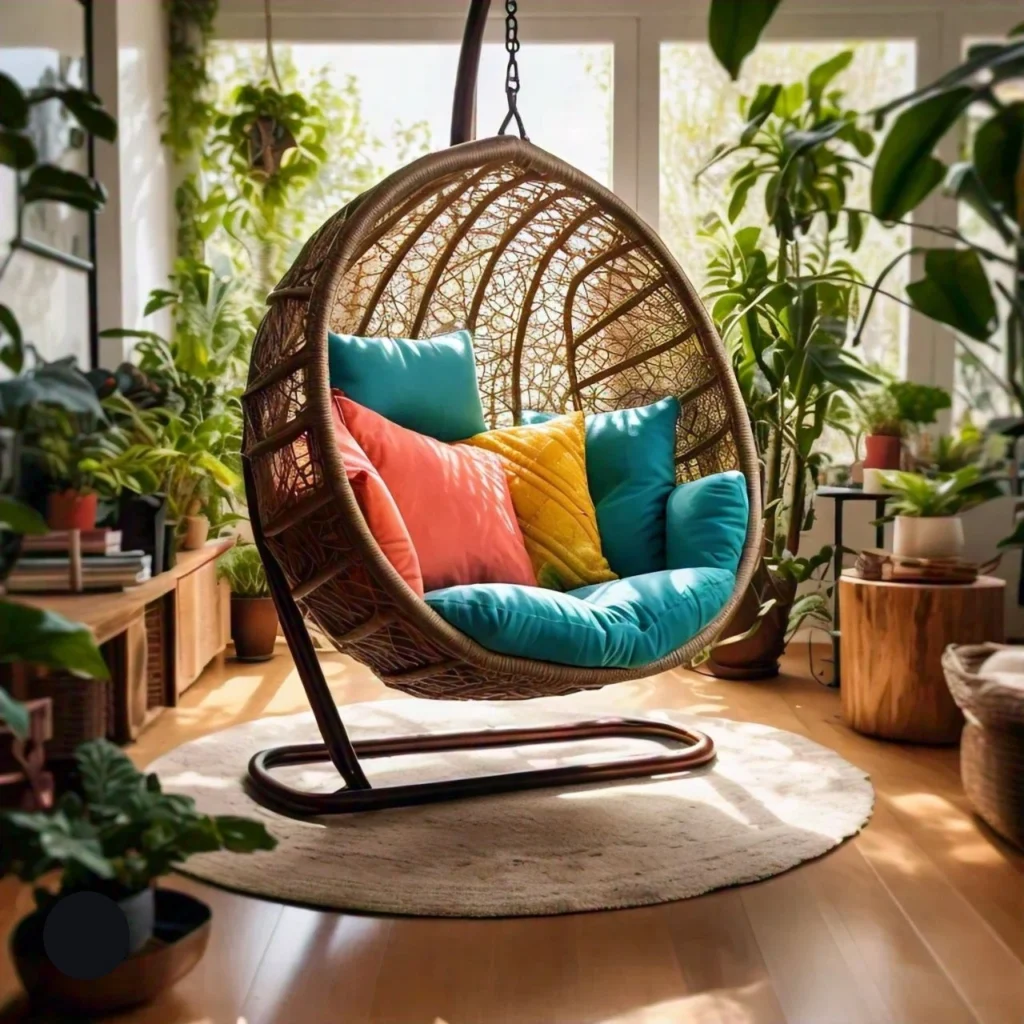
In the first place, consider the other decoration pieces in your home when designing your indoor swing. Furthermore, take into account the existing furniture in your home, making an effort to match all colors and materials. A rattan chair and a rope swing, for instance, can create a fun beachy vibe. On the other hand, a well-designed leather swing can add the necessary flare to a modern setting.
Indeed, adding cushions or throws not only enhances comfort of the swing, but also welcomes seasonal changes. Moreover, making affordable textile changes makes the swing area warm and more inviting. In fact, well-designed indoor swings not only seamlessly blend with the entire design concept but also serve as an eye-catching feature that is hard to ignore.
Choosing the Right Location
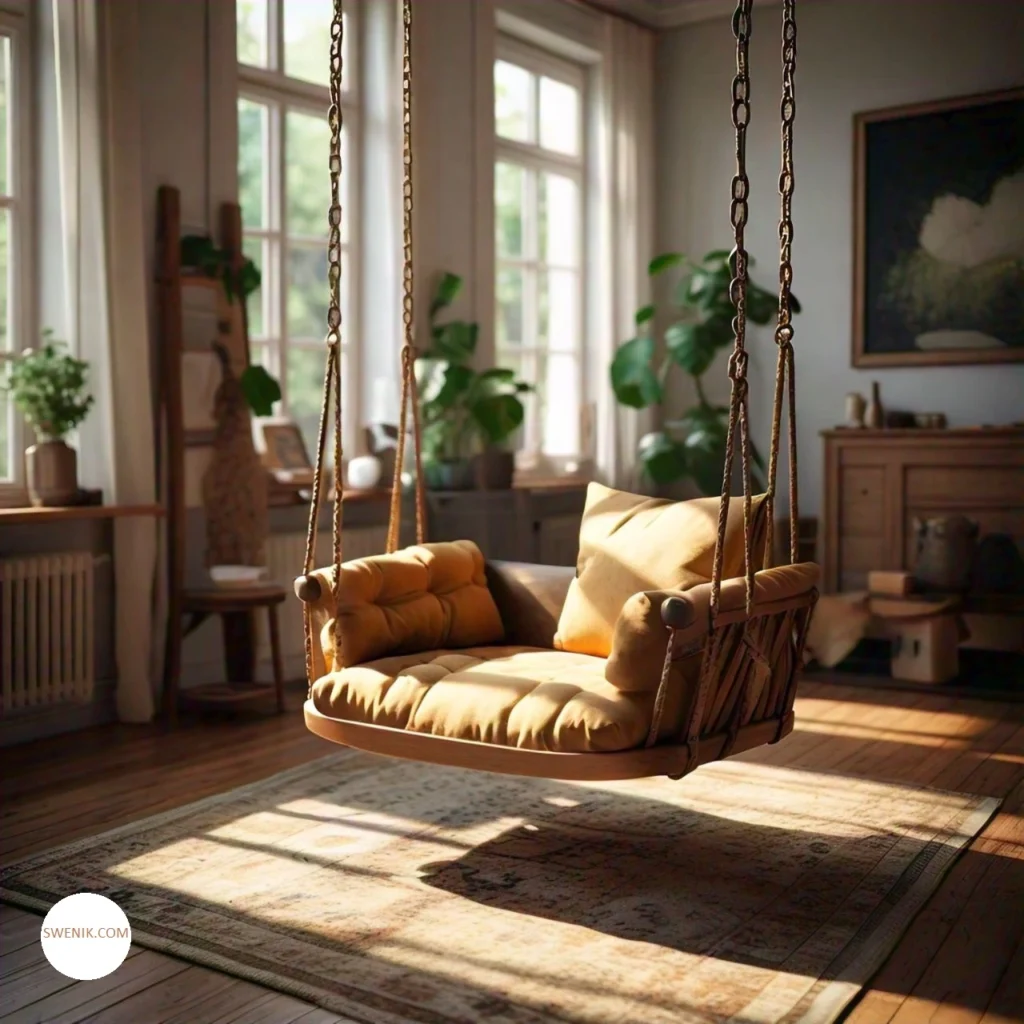
In the first place, a location ideal for the swing’s dimensions also permits enough distance for swinging action. Moreover, common sitting areas like the ‘living room’ often serve as perfect spots for indoor swings and can transform into ideal nooks for reading or conversation. Above all, it’s essential that these swings can rotate or move without striking other furniture or walls.

In short, an ideal location for a swing is by a horizontal wall, ensuring enough rotation space. Moreover, potential extensions should be considered, as they can enhance the impact in a minimally furnished or empty room. Furthermore, using longer ropes or chains can add to the swing’s allure.
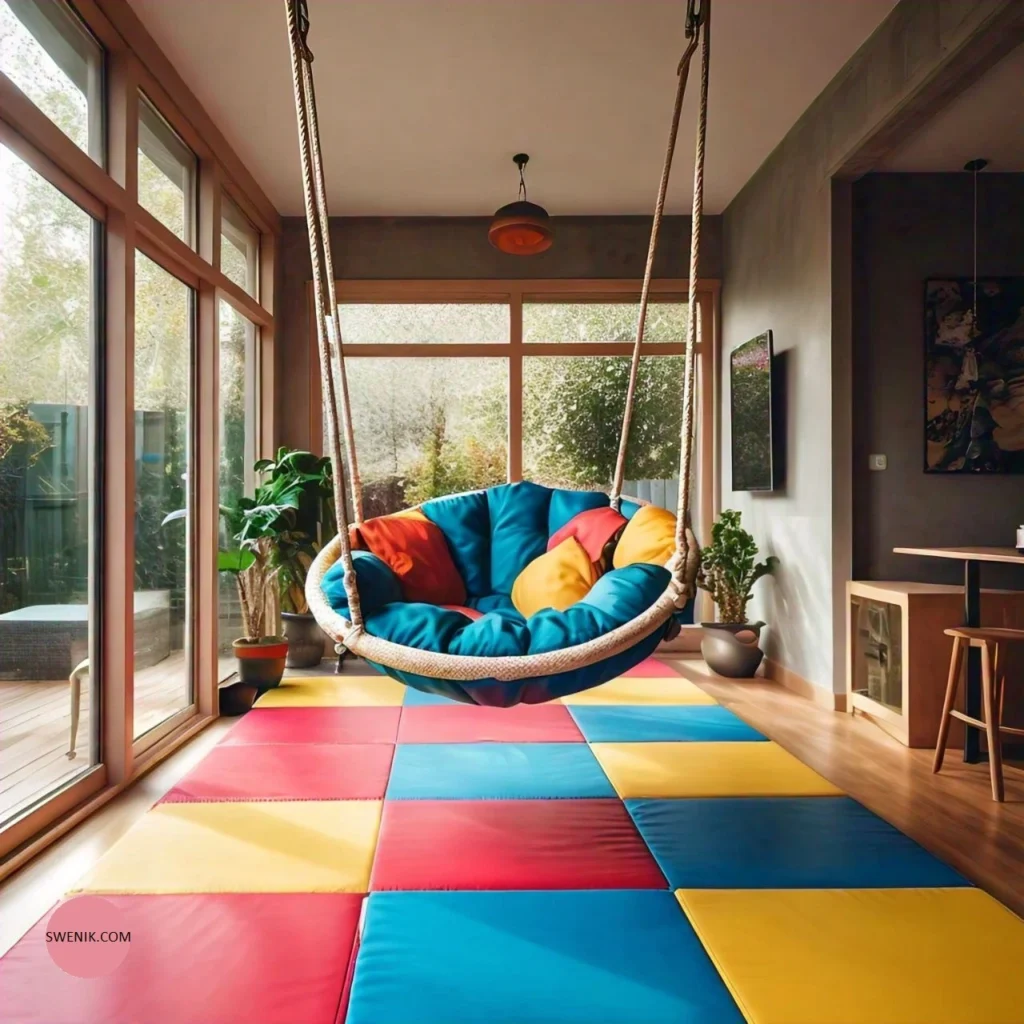
Indeed, for families planning to have children, placing a swing in a play area can be beneficial. In this way, not only do children derive great joy from swinging, but the room also effectively confines their swinging motions within a specific area. Moreover, when deciding on the ideal location for your indoor swing, scrutinize the surrounding area to ensure it boosts both your practical use and home’s aesthetic.
Types of Indoor Swings
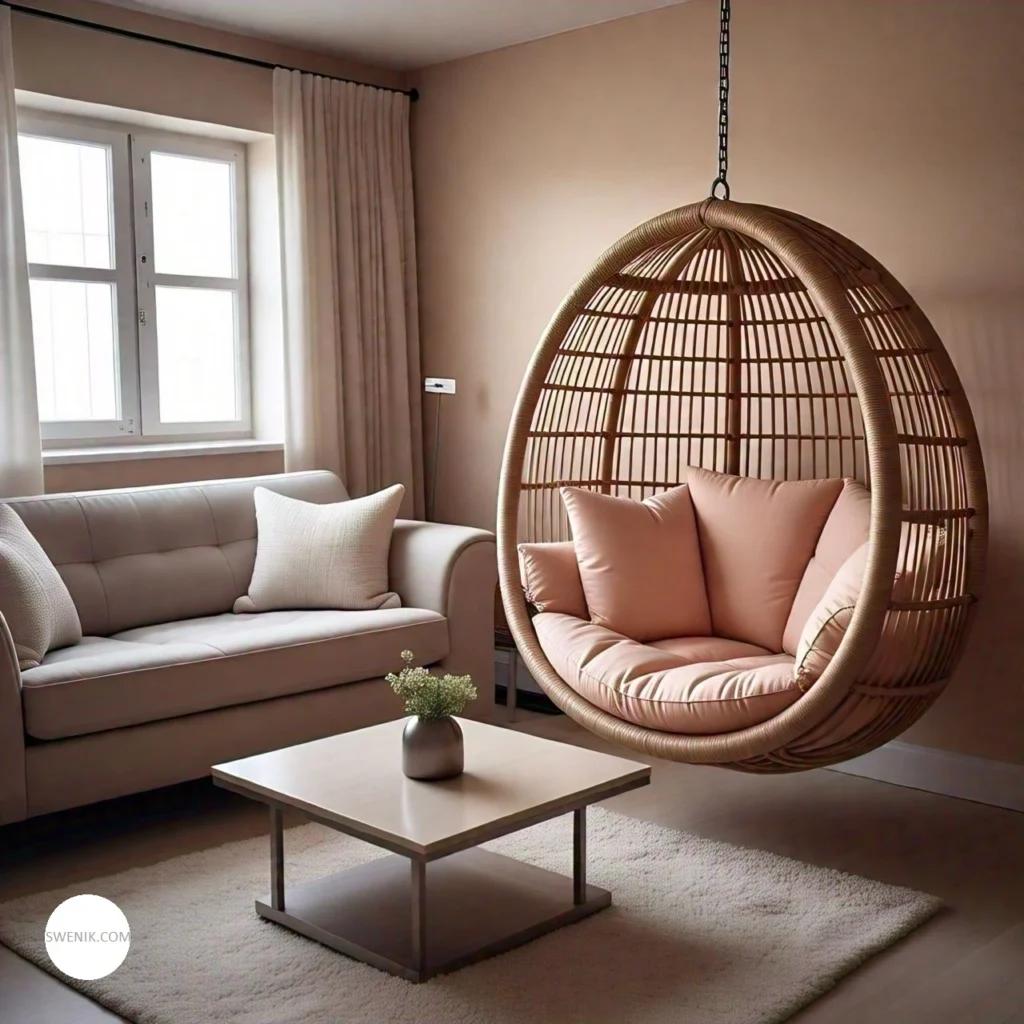
Indeed, there are different designs and constructions of swings as an indoor accessory that can suit everyone’s needs and tastes. An indoor swing can be a classic rope swing, which is not only easy to install but also adds a charming and ideal touch for rustic or nautical decor. On the other hand, if you’re looking for something modern, there’s always the option of a hanging chair swing. This design not only encases the user but also ensures their utmost comfort inside.
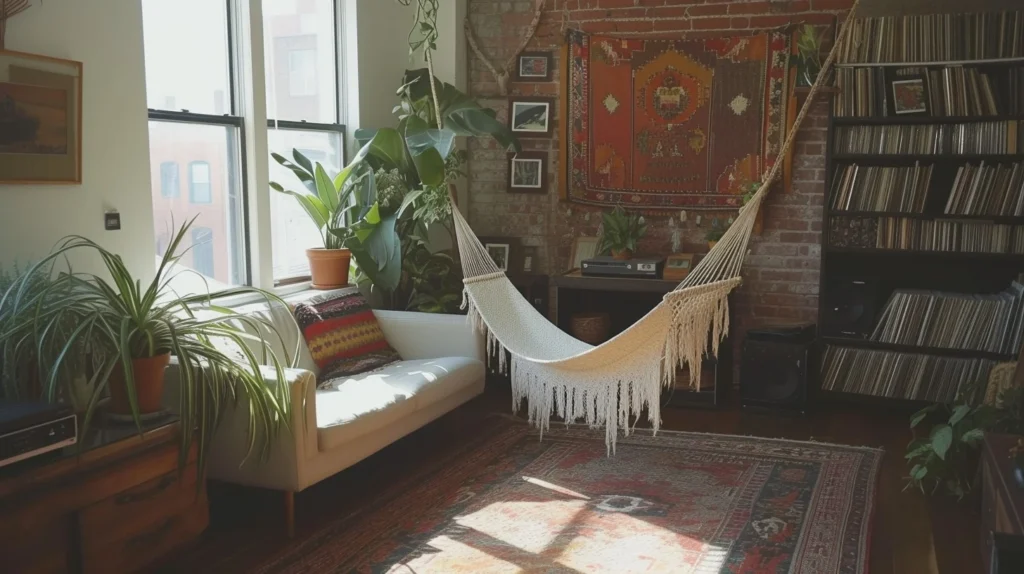
Indeed, for a sophisticated touch, one should opt for a macramé or woven swing. These elaborate Indoor Swings designs not only provide volume and depth, but also look great in bohemian or eclectic settings. On the other hand, a swing bed which can primarily be used as a place to sit can comfortably provide a whole new angle of swinging. Furthermore, it offers a relaxing experience to use throughout the day or even to sleep on.
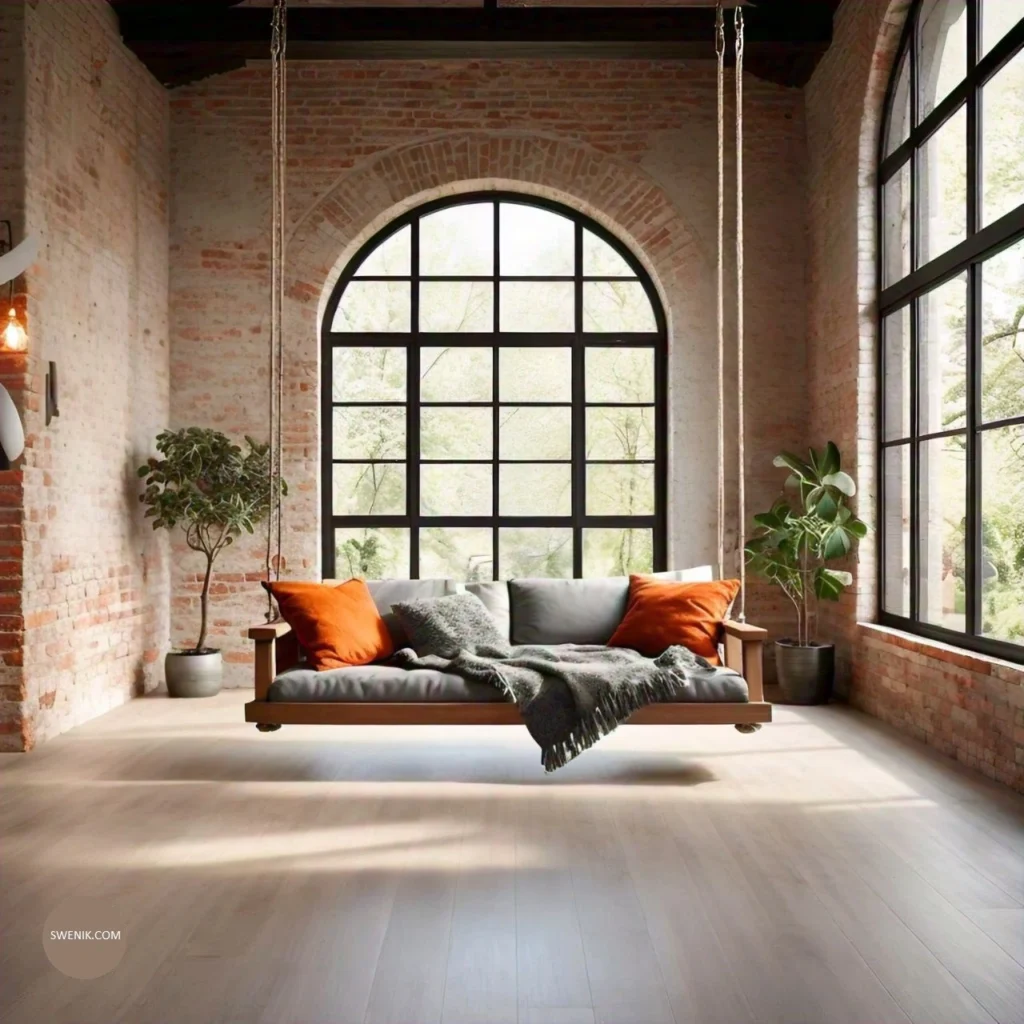
In the first place, when choosing a swing, one should always consider the users and frequency of use. For instance, wooden swings are excellent for families. On the other hand, the delicate construction of a macramé swing suggests limited, adult use in lower density areas. In the end, the right swing will reflect individual taste and household needs.
Design Inspiration for Your Indoor Oasis
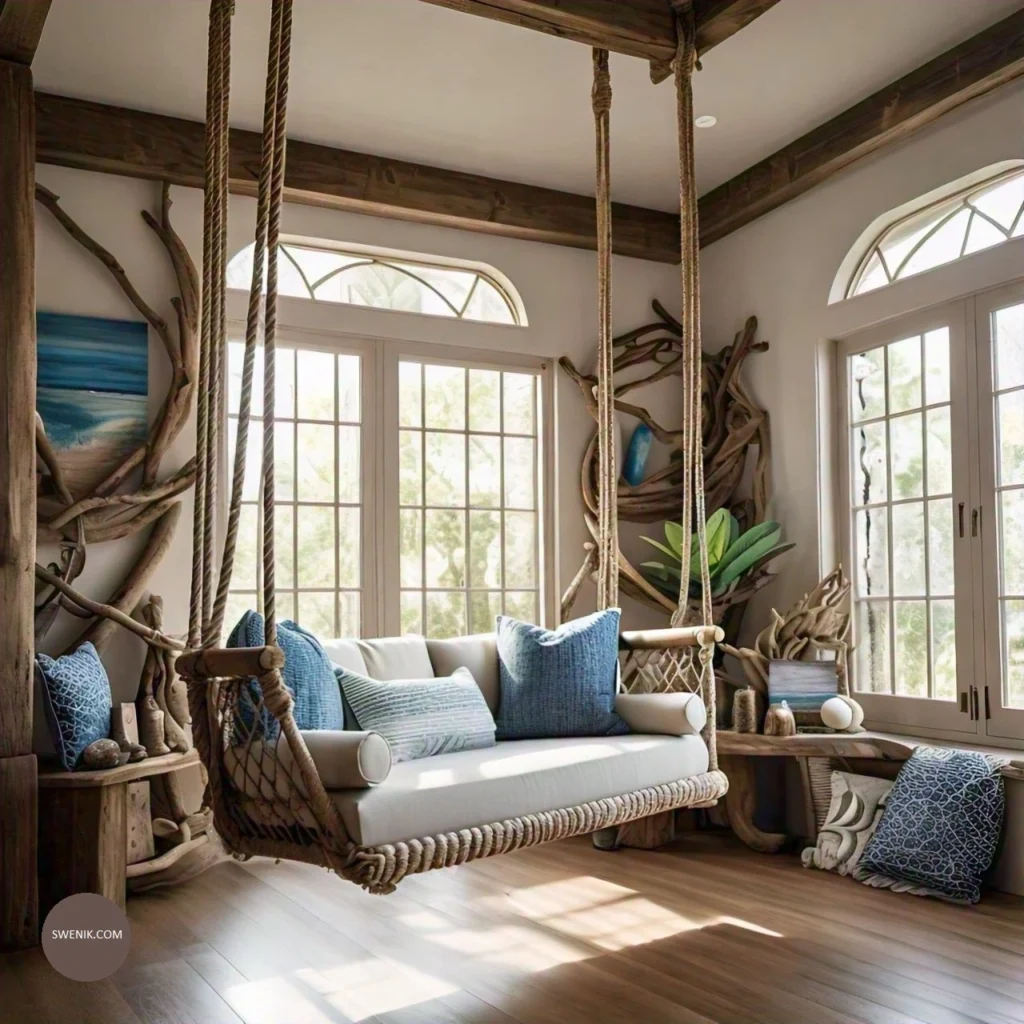
In the first place, are you seeking some design ideas? Indeed, focus on themes that match your taste. A coastal swing corner could feature a rope swing adorned with blue and white fabric pillows, and decorations crafted from driftwood and seashells. Alternatively, for a more modern appeal, consider metal chains, sleek leather whoos, and industrial structures next to a mildly rough brick wall.
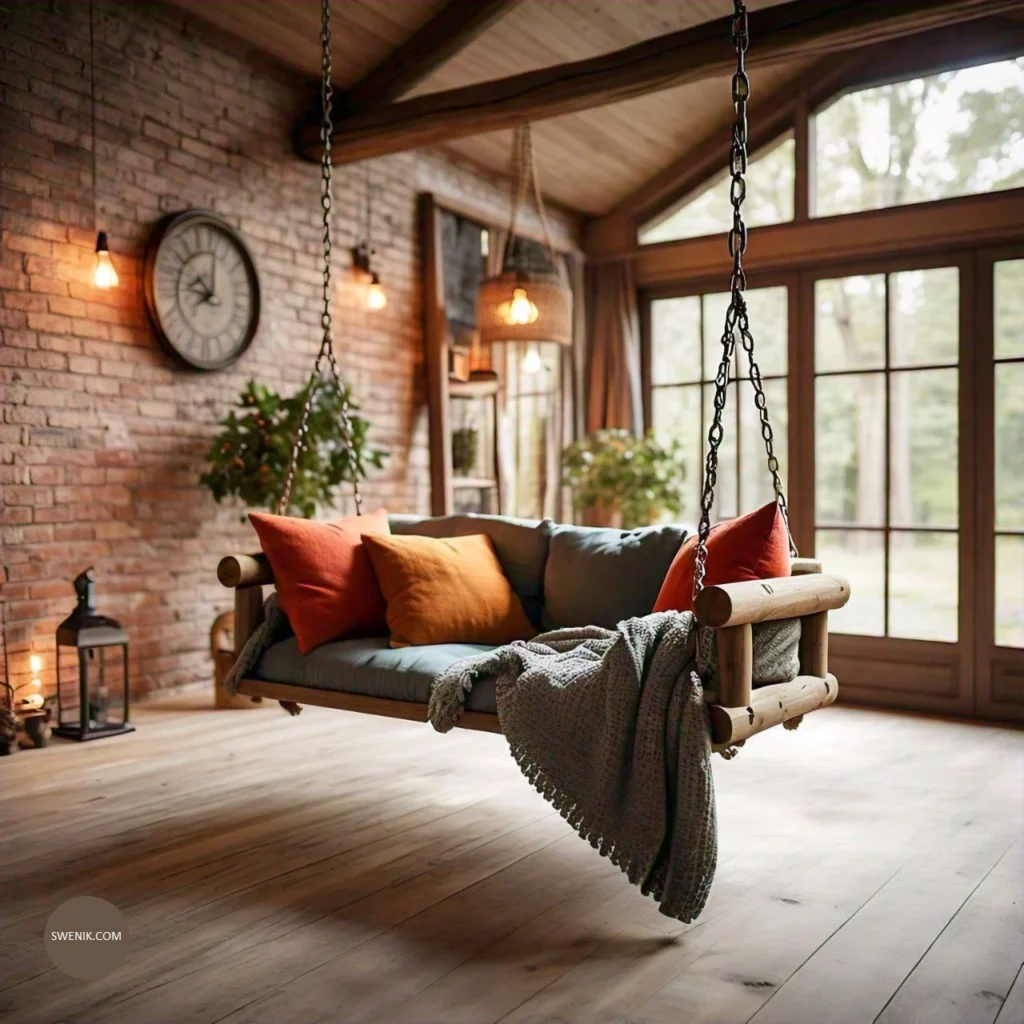
In fact, a log-like swing set with a basic plaid pillow, combined with a knit throw and setting, can create the magic of a cottage retreat if you desire a simple, country feel. Furthermore, enhance the ambience by integrating the space with a floor-standing lamp or hanging wire lights around the space. On the other hand, for rooms with sparse furnishings and sharp edges, choose single swings with solid color cushions to convey a precise and elegant message.

Keep in mind, the swing alone is ample canvas on which you can demonstrate your creativeness. Embroidered pillow covers or variety of colors to paint the swing lets you stamp it in your own way. From here, it is only limited by your imagination, and you are able to make any part of the house an exquisite indoor retreat.
Materials Needed to Hang an Indoor Swing
Indeed, never overlook safety when installing an indoor swing. Initially, secure the swing to a robust ceiling beam, making sure it supports more than one person’s weight.
Furthermore, you should regularly monitor the condition of the swing, including checking for and replacing worn out parts like frayed ropes or rusted chains.
Moreover, consider the swing’s height carefully. It must not be too high for children to reach or too close to the ground, which reduces drag.
The swing seat should not sit too high, however, it should be elevated enough to avoid ground obstacles. This prevents it from completely missing the ground when in motion.
Additionally, if the swing is mainly for children, as is the case in domestic settings, adult supervision is essential. Finally, educate users on the correct use of the swing, laying emphasis on sitting over excessive swinging. By doing so, you ensure safety.
Tips and Tricks for DIY Décor on Indoor Swings
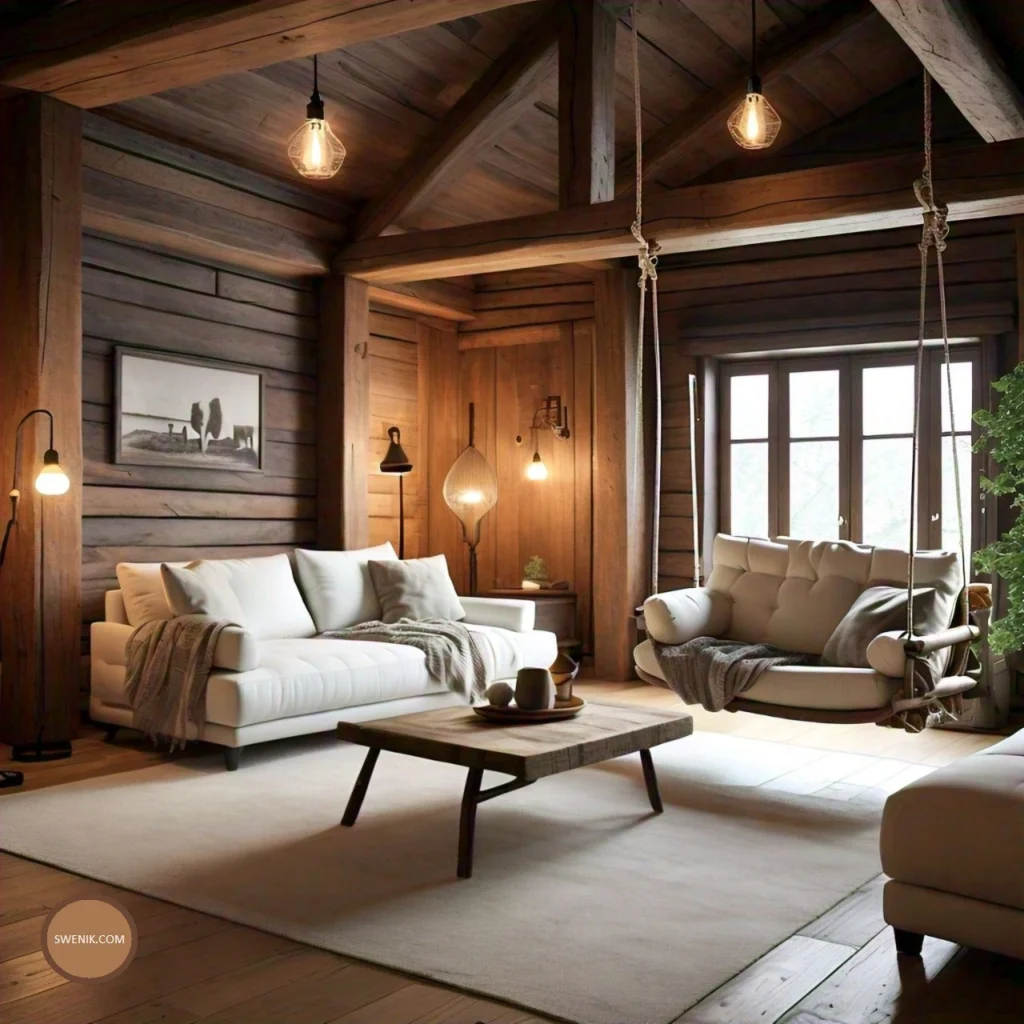
Indeed, you must know by now that installation of a swing at home will require more than just the basics. In the first place, the main aim is to go beyond the necessities. Moreover, handmaking your own swing and fabrics will add a unique touch. Furthermore, adding decorative pieces to the swing gives it a quirky touch. Additionally, the area surrounding the swing set should not be ignored. In fact, cautiously placed décor can also define the swing area and add texture. To conclude, this will not only improve your home but the DIY decor will be a clear exhibition of your embellishments relationship with the room.
Creating Your Personal Indoor Sanctuary
Building an indoor swing in your home is not simply a way of improving the interior design, instead, it introduces a new way for you to enjoy your space. Indoor swings are not just playful and unique decor features, they also serve as an excellent opportunity to design the house with a comforting style.
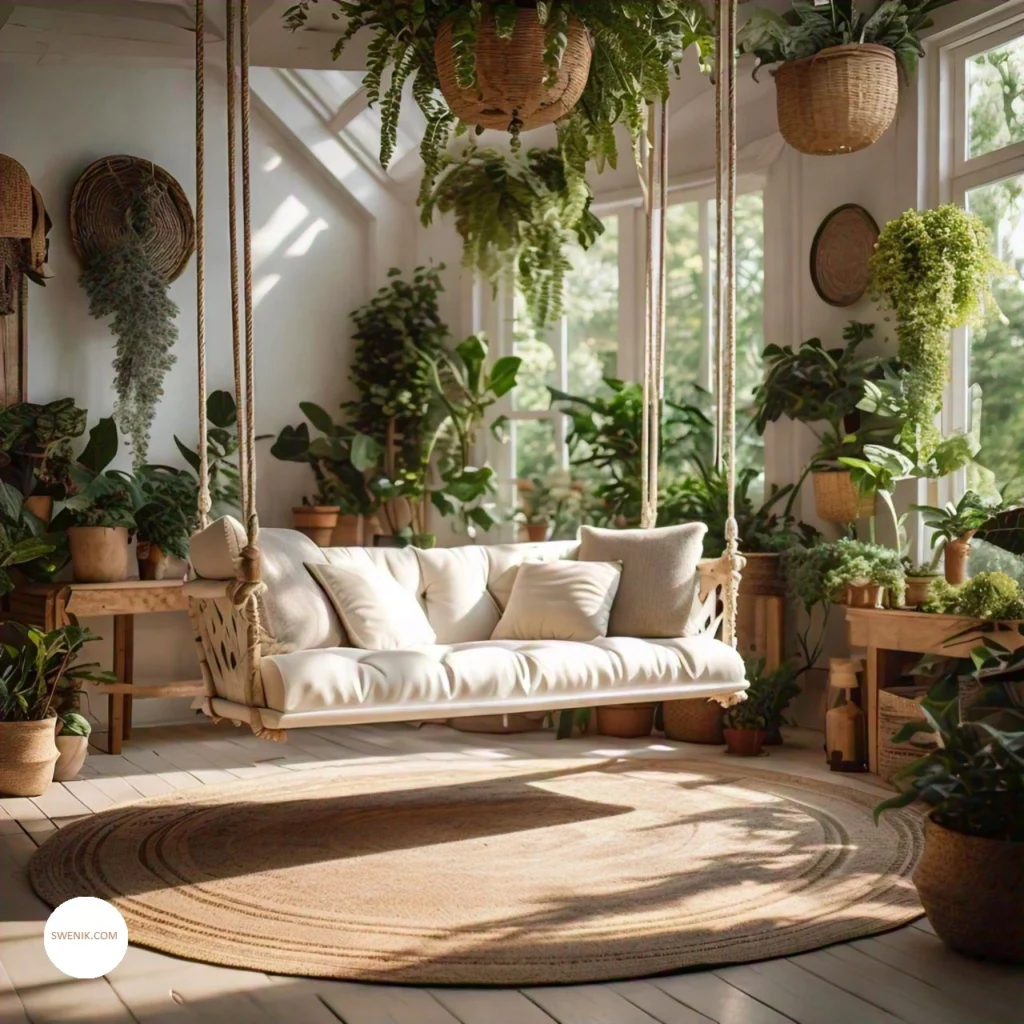
Indeed, this guide has discussed necessary issues of selection, design, construction, and installation of an indoor swing, stating how practical and artistic ideas can be achieved. Moreover, the biggest challenge is fitting the swing within the existing décor to suit your family’s comfort.
Now, it’s time to put plans into action and implement your ideas about an indoor swing. From those kitchen breaks to the weekends; the perfect indoor swing will make everything feel like home. So, read on and get started with designing those exceptional and tailor-made indoor swings.




